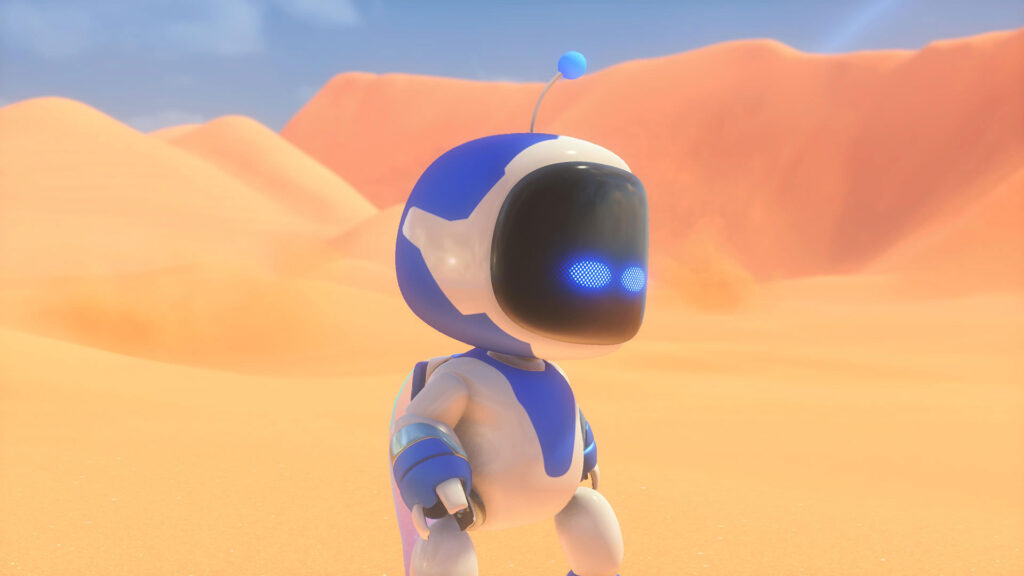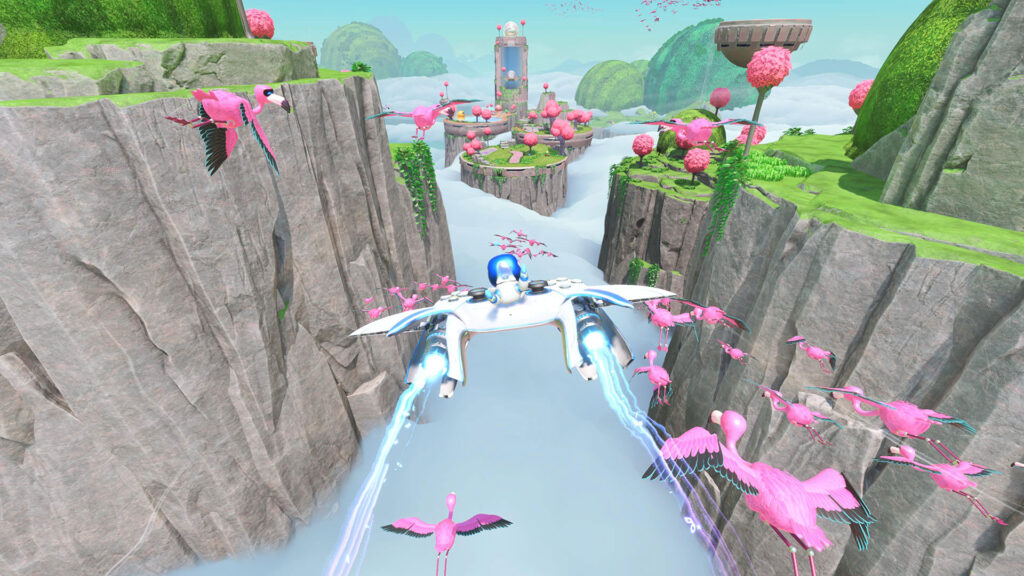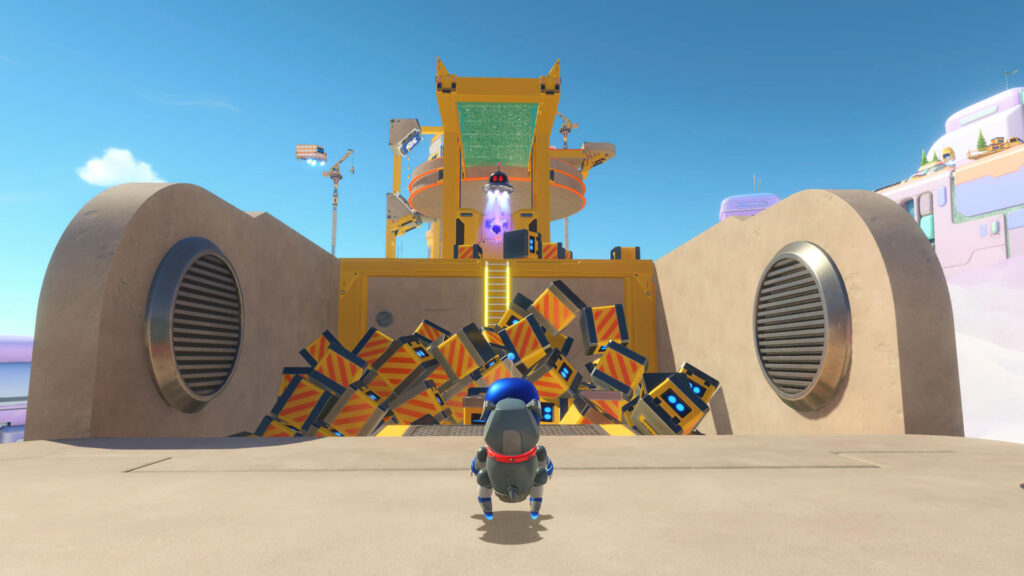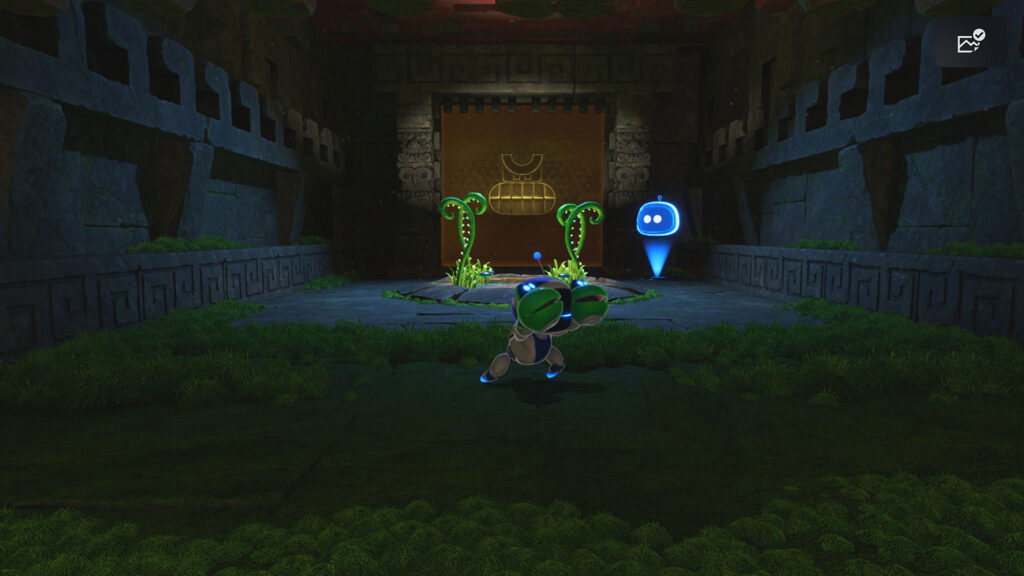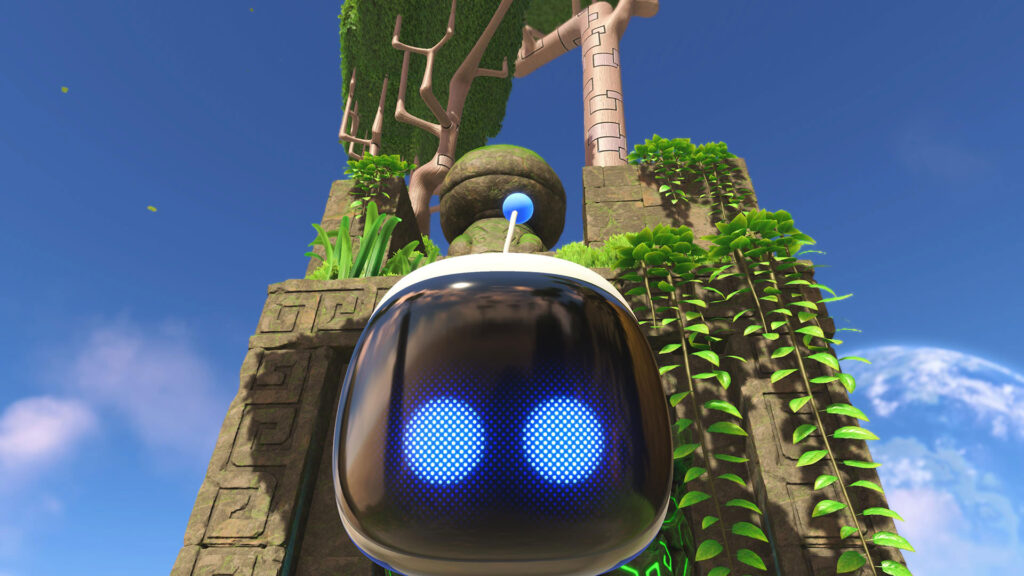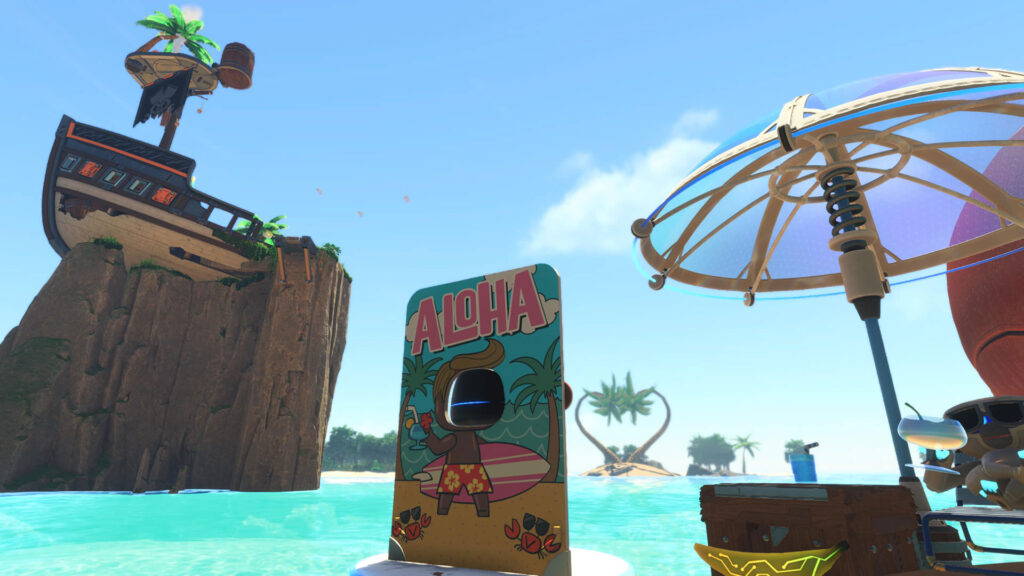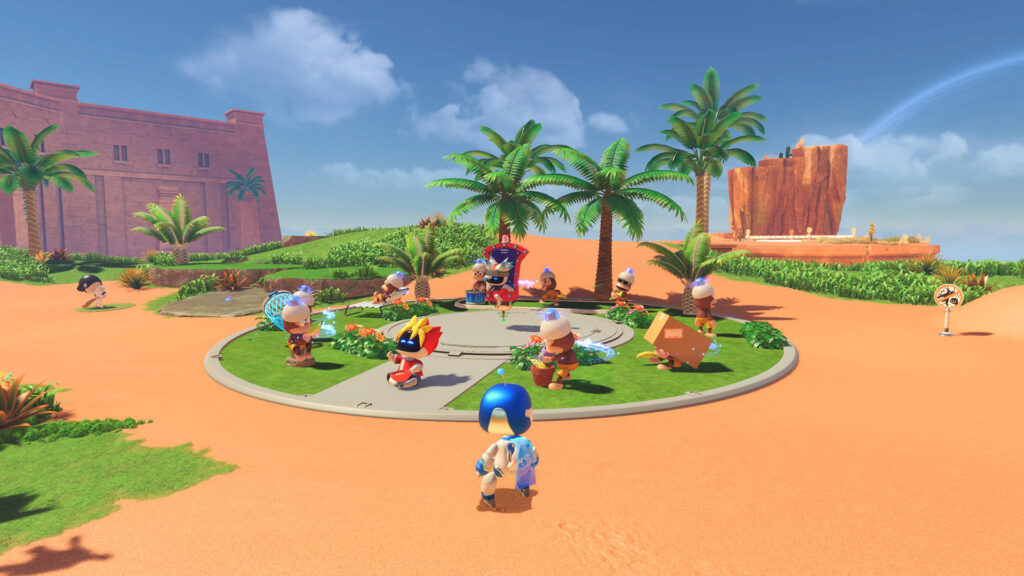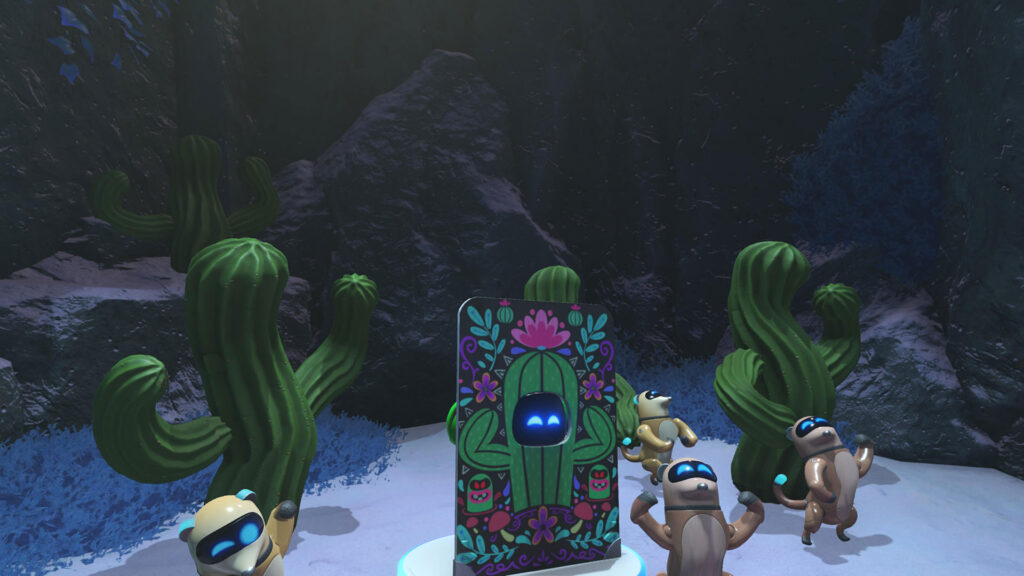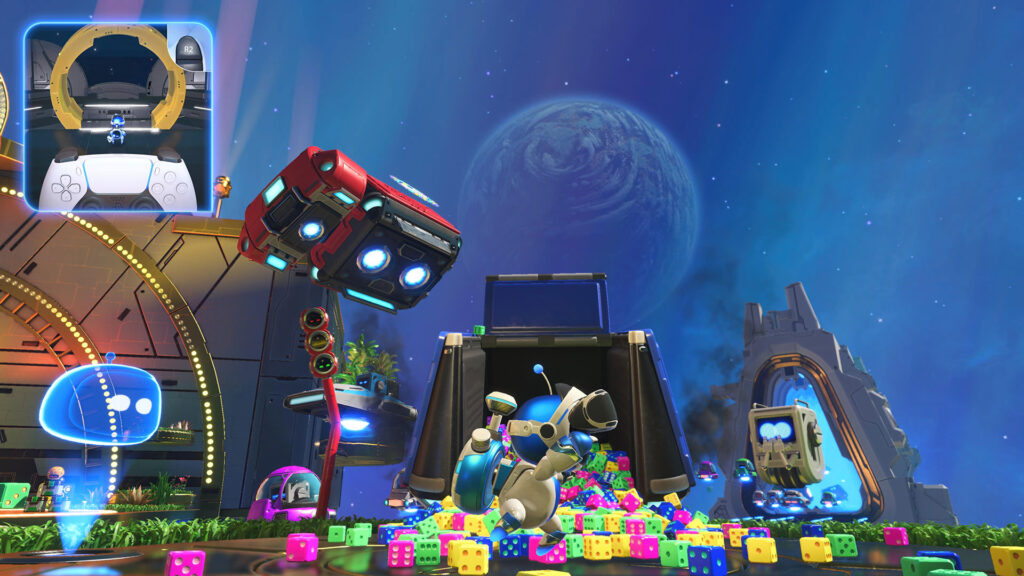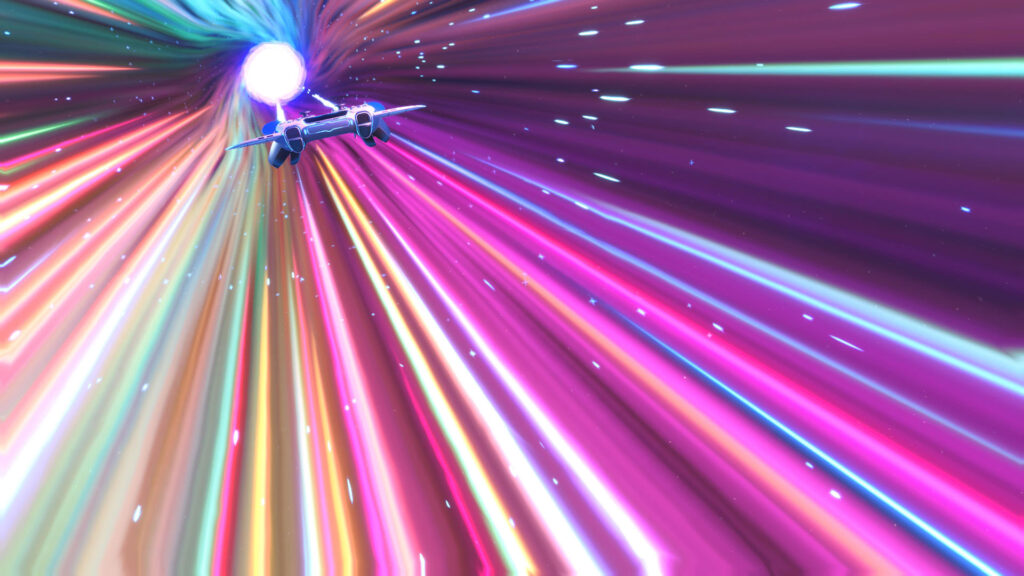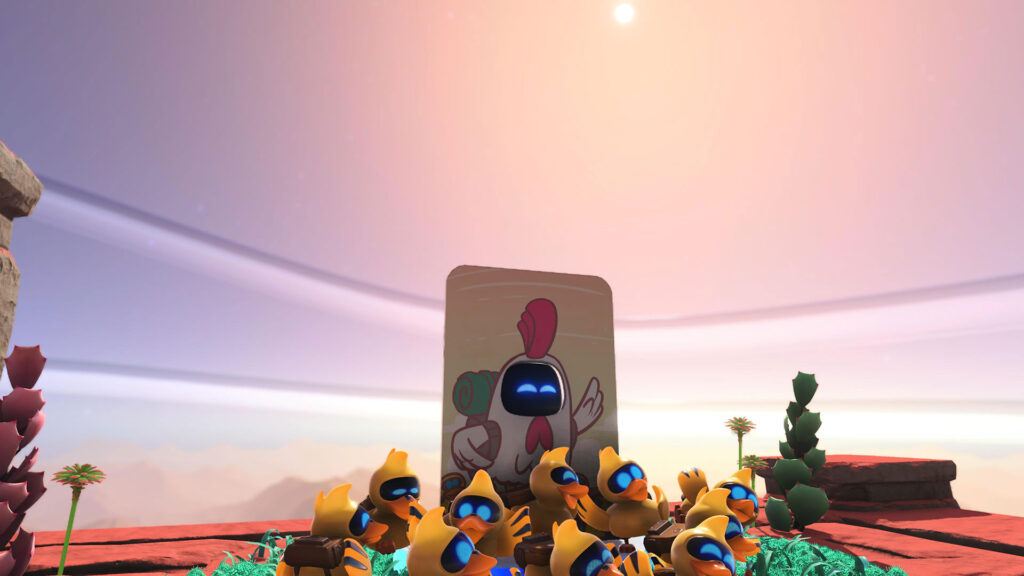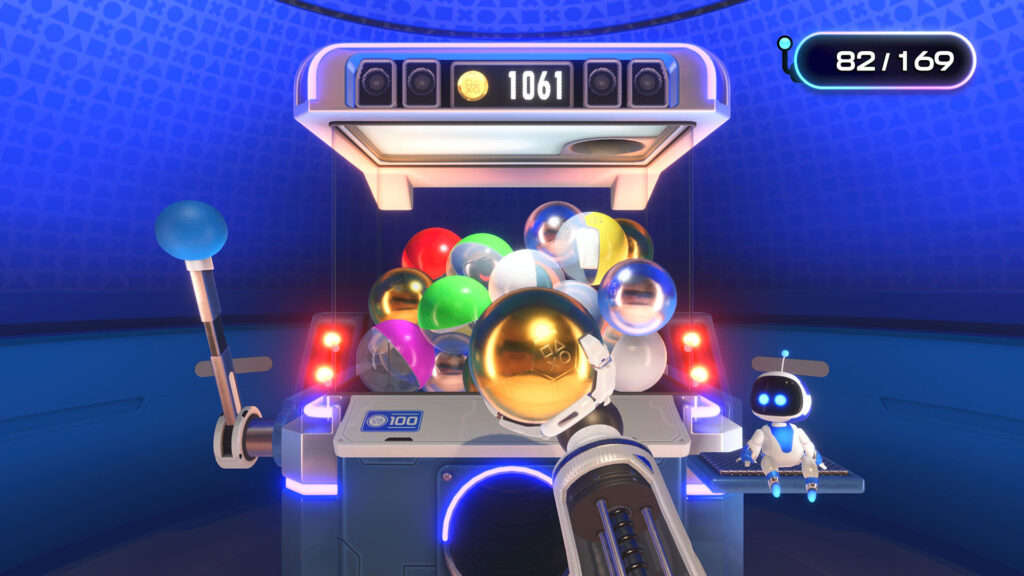Quick Verdict
In an era where many game developers are focused on chasing the next Elden Ring by making their games increasingly difficult, playing Astro Bot is like clearing your sinuses and finally being able to breathe again. It might be an exaggeration, but it feels like it’s been ages since I played a game that wasn’t focused on punishing players for their mistakes. A game where having fun and making you smile are the primary goals. Astro Bot is just that and it does it all very well.
The game also celebrates gaming as a whole, with iconic characters making an appearance in the form of bots in need of rescuing. Some of these are PlayStation-exclusive characters, while others are franchises every platform has known and loved throughout the decades. This is part of what makes Astro Bot so enjoyable, as the collectibles themselves are engaging to find. Even for someone who typically avoids 3D platformers, Astro Bot was a real treat.
Cosmic Caper

The internet often jokes that Game of the Year awards are silly, but in reality, they have a significant impact on the industry. Major winners often shape the industry for years to come. Take Overwatch, for example, which was named Game of the Year at The Game Awards 2016. Now, hero shooters are being developed by all kinds of studios, including some that have been complete disasters for companies as large as PlayStation. There’s no denying the influence of 2018’s God of War on cinematic, single-player experiences, and Elden Ring’s success since its early 2022 launch has already led to dozens of games focusing on soulslike mechanics—though you could argue that influence originates with the Souls series. Nonetheless, games that win coveted awards often serve as inspiration for major publishers and indie developers alike. After all, if millions of gamers already understand the premise, it feels less risky.
Where am I going with this? This year, there seemed to be a strong emphasis on difficulty and soulslike mechanics across a wide variety of games. We had major releases like Stellar Blade and Black Myth: Wukong, while indies got in on the action with titles like Another Crab’s Treasure. While it likely wasn’t intentional, Star Wars Outlaws had its own frustrating and unforgiving moments, and Final Fantasy VII Rebirth is already considered one of the most challenging games to Platinum. I often found myself thinking that developers had forgotten to make their games fun. It almost feels like they are running down a checklist of what every game needs to be “in style,” and as a result, many of them end up feeling uninspired and bland.
Astro Bot bucks this trend by creating a game focused on having fun while oozing with creativity. It features a generous checkpoint system, where dying feels like only a mild inconvenience. There’s no Game Over screen—at least I never saw one—and it reminded me how much I had forgotten what it’s like to simply enjoy a game like this. That’s not to say it’s really easy; Astro Bot definitely has content for the most hardcore and skilled 3D platformers in the world. Those levels aren’t required to finish the base game, but the rewards are available for completionists and players who embrace the challenge. I truly hope Astro Bot earns a few Game of the Year awards, as it might remind developers that games should be fun.
Circuit Breaker

I have to admit, 3D platformers aren’t my cup of tea. I usually play a portion of the great ones, like Super Mario Odyssey, but I rarely ever finish them. Astro Bot is the exception, largely because it’s not a particularly difficult game to complete, and it only takes around 10 to 15 hours. The core game has five galaxies to explore, with a sixth that can be unlocked. Each galaxy offers a mix of standard levels and secret levels. Some of these secret levels are “shape” levels, offering a completely different experience from the standard ones—more on that in a minute. To complete the game, you’ll only need to play through the standard levels, but you will need to rescue 200 of the available 300 bots on the way there. That means possibly revisiting certain levels depending on how thorough you’ve been, but overall, rescuing 200 bots during the campaign is not difficult at all.
The shape levels are special stages that can be unlocked, representing the iconic PlayStation shapes: circle, square, triangle, and cross (x). These stages are designed for 3D platforming experts, and I did spend the time challenging myself to complete an entire series, but it reminded me of everything I dislike about 3D platformers. This is where I have to give Astro Bot a lot of credit. The developers at Team Asobi manage to balance difficulty very well in the standard levels while providing the precision and challenge that some players demand. What I enjoyed about the shape levels was that they were all relatively short, though there were no checkpoints (at least in the ones I attempted). When you die, you’re back to the beginning, but it’s tolerable because you really only lose about 30 seconds worth of effort. It strikes a fantastic balance, even for people like me, who tend not to have the patience for this style of gameplay. It’s often one of the reasons why I’ll put down a 3D platformer and never return to it.
At the end of each galaxy is a boss fight, which always has a different mechanic to master. The same creativity found throughout the game’s levels is present in the boss fights, with a similar balance of difficulty. The fights are slightly challenging until you figure out the mechanics, after which they become quite easy to master. After defeating each boss, you unlock a special stage themed around a PlayStation franchise. I don’t want to spoil any of these, but I found them all to be fantastic. I especially loved how some iconic soundtracks from each title were remixed with an Astro Bot flair; one even became a favorite of mine to play on repeat. This is also one of the major reasons why I managed to complete Astro Bot: I was always looking forward to seeing what next themed level was going to be at the end of a galaxy.
Robotic Rumble

If you’ve played Astro’s Playroom, which comes preloaded on the PlayStation 5, you’ll know it was designed to showcase the possibilities of the new DualSense controller. Unfortunately, most PlayStation 5 games from other developers haven’t reached the same level as Astro’s Playroom, let alone what Team Asobi achieved in Astro Bot. The enhancements the DualSense controller brings to the gaming experience are undervalued and underutilized, as they made the entire Astro Bot playthrough far more satisfying, even when I was dying repeatedly. From the haptics to the sound effects, the game feels more alive, with every action felt in your hands. Some uses of the controller are highly creative, while others, like blowing into it, feel a bit gimmicky. However, these sequences are generally brief, so complaining about them feels more like nitpicking.
The special powerups throughout the game also take full advantage of the DualSense, providing enhanced feedback when you use them. Again, I don’t want to spoil the various powerups, but I will say they’re often cleverly tied to the theme of each level. Some are more original than others, but they’re all enjoyable in their own way. To have an excellent 3D platformer, though, the controls must be responsive. The game responds exactly as expected when you push the thumbstick or press a button. As you can probably tell, Astro Bot exceeds those expectations—otherwise, I likely would have been too frustrated to finish the game.
The creative level design, combined with the DualSense controller, delivers a fresh and highly enjoyable 3D platforming experience. Some may argue that the DualSense is more of a gimmick than an enhancement, but personally, I felt it made the Astro Bot experience more complete and enjoyable. It enhances the feeling of immersion in a game already filled with vibrant colors and lush landscapes that are a visual treat. In a genre dominated by giants like Super Mario Odyssey, Astro Bot carves out its own unique space by leveraging the DualSense controller and injecting playful creativity into every level. While it doesn’t reinvent platforming mechanics, it raises the bar for how games can immerse players through a tactile, sensory experience.
A Trip Down Memory Card Lane

The highlight of Astro Bot is the Crash Site, which serves as the hub galaxy at the center of your map. It’s where you’ll find all your rescued bots, along with the PlayStation 5 console you’re reassembling, functioning as your ship—the main objective in the story. Running around the Crash Site after clearing a galaxy was easily the highlight of each play session for me, especially interacting with all the bots I’ve rescued. You get access to a new area after completing a galaxy, which is where you’ll find the unlock for the next galaxy. To access different areas of the Crash Site, you’ll need a specific number of rescued bots, which means you may encounter roadblocks if you haven’t saved enough. The Crash Site is also where you can spend your coins at the gacha machine. Most of the gacha rewards are accessories for the rescued bots, but you’ll also find paint schemes for the DualSense controller Astro Bot uses to get around, along with other fun items. You’ll need to collect puzzle pieces to unlock all the kiosks at the Crash Site, including those that give you access to costumes for Astro.
If you decide to go back to a completed level to find the collectibles you missed, the game makes that a bit easier for you. A robotic bird companion joins you on replays and notifies you when you’re near a collectible or secret. This simple, elegant solution helps you find missing bots and encourages replayability by making the process feel less like a chore.

The fact that I’m hesitant to share details due to spoilers speaks volumes about Astro Bot. The game doesn’t have much of a story—just a generic Saturday Morning Cartoon-style villain who dismantles your PlayStation 5 ship—but it’s so delightful when a new themed level is revealed, or you discover a favorite character bot. The game radiates so much joy and happiness that it simply feels good to play. While many games today reward players with a challenging experience, Astro Bot rewards them simply for picking up the controller. The game is packed with so many cool ideas that I can only hope developers draw inspiration from it, as they have from other games.
Astro Bot not only celebrates PlayStation’s past with its characters and soundtracks but also evokes a sense of wonder and nostalgia that’s hard to replicate. For longtime fans, these moments feel like a love letter to the brand’s history, amplifying the joy of the overall experience. With its inventive use of the DualSense controller and joyful creativity, Astro Bot proves that games don’t need to punish players to be impactful. It sets a high bar for platformers and should be an inspiration future developers look to when balancing fun and innovation.
Astro Bot official release date is September 6, 2024 on PlayStation 5. This review is based on a purchased retail copy of the game on PlayStation 5. While FullCleared does have affiliate partnerships, they do not influence our editorial content. We may, however, earn commissions for products purchased via affiliate links.


